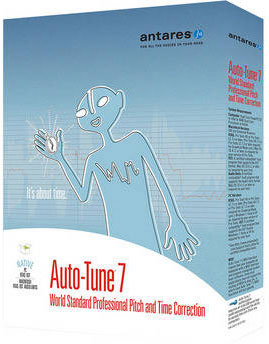A Lack Of Passion In A Performance Can’t Be Fixed By Effects, But…

There’s something every recording engineer thinks about as they are tracking (recording) musicians doing their thing. That is “should I have them do it again or can I fix it in the mix?”
In a perfect world, if we heard something not exactly perfect (a drummer bit off beat or a singer bit out of tune), we’d definitely have them do it again.
But time and money, not to mention the attitude of the performer, are all issues that need to be considered. Luckily, there are tons of things that CAN be fixed in the mix, which is another way of saying corrected after-the-fact – usually by means of effects like compression, tempo correction and vocal tuning.
I read an article by Graham Cochrane this morning that basically says yes, you can fix a lot things in the mix, but passion in a performance isn’t one of them.
His point is that effects plugins like a vocal tuning program can’t fix a passionless performance. You absolutely need to get that right BEFORE the mix stage. So the basic message is that effects are no help here.
Graham does say that as the engineer, he can be made more comfortable knowing exactly what CAN be fixed in the mix by effects if he hears those things happen while he’s recording.
But I think there’s one thing Graham is not considering here. I believe that an understanding by the performer of what can and cannot be fixed in the mix can also free them up to be more relaxed and give a great performance.
I’ve seen it over and over, especially among singers who made recordings before the prevalence of Auto-Tune. Back in the day, if a singer had a particularly challenging note, they would get very nervous before having to sing that part when recording.
That tightness actually made it more difficult to get that note right. So after multiple takes, the singer would be extremely careful to hit the darned note, over-focusing on the pitch or tone and not really caring about the passion of the performance.
But then along came Auto-Tune. First, let me state that I think Auto-Tune (and other tuning programs) is way over-used in pop and country top 40 recordings. You shouldn’t just automatically snap every note to the grid the way so many producers do these days.
But you can read about my thoughts on the proper use of Auto-Tune in my article – Auto-Tune – Any Tool Can Be Abused. The point is this – singers started to loosen up and worry a lot less about getting the pitch exactly right during the recording when they knew that it could be corrected in the mix! The existence of the effect plugin actually improved the quality of the performance, allowing a more relaxed and passionate delivery.
So though I agree with what Graham is saying in his article – you can’t add passion back into a flat performance with an effect plugin – I think it is worth noting that an effect plugin can make it more likely that you’ll get a passionate performance in the first place. We come full-circle:).


I agree auto tune’s overused these days. I have to say, though (especially when recording from home), it’s tough to stand work up against industry standard recordings when keeping a purist’s approach to compressions and auto-tuners. Just about everyone seems to be using them to full tilt these days, and I fear it makes a listener’s 21st century ears more sensitive to imperfections. Trust me, as a fan of Johnny Cash, and one who grew up on punk, I like things simple and real. But doesn’t today’s slicked over sound sort of push a purist’s approach into irrelevance?
Chad – I’m with you. I am FOR the use of Auto-Tune in recordings. My main point was that you can use it AND still sound natural and completely on-pitch. Just use it in graphical mode and only fix the pitches that need fixing, if any. Now, I say “if any,” because there ARE singers (and styles of singing) that are so good that little-to-no fixing would be required. But honestly, even the best singers I know, who rarely hit any flat/sharp notes, still hit them occasionally in the studio. There is a difference for a lot of folks between how you hear yourself in the studio and singing live. So Auto-Tune is always part of my recording toolkit, even if it’s only to address 2 or 3 notes in a song.